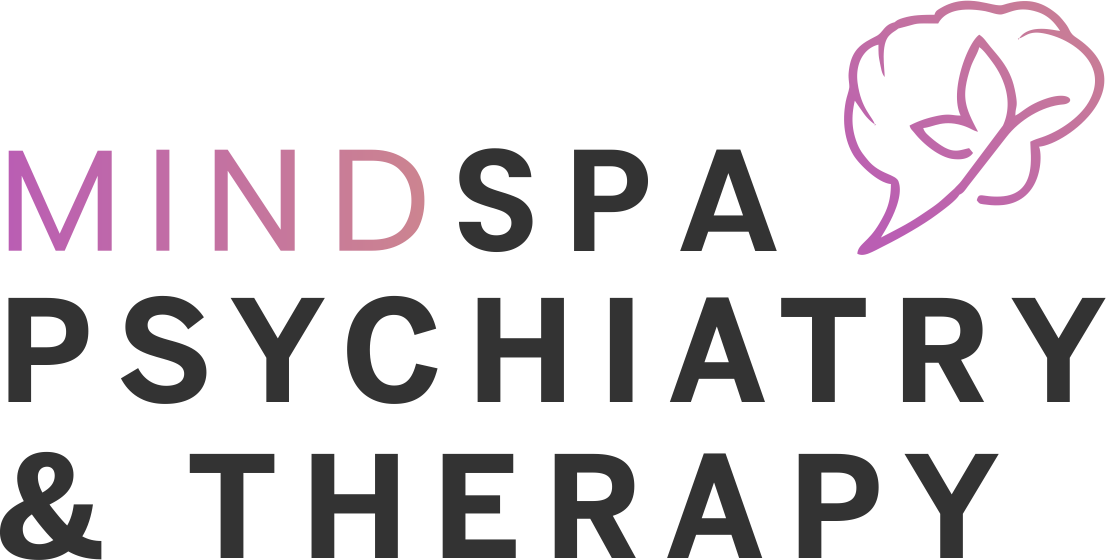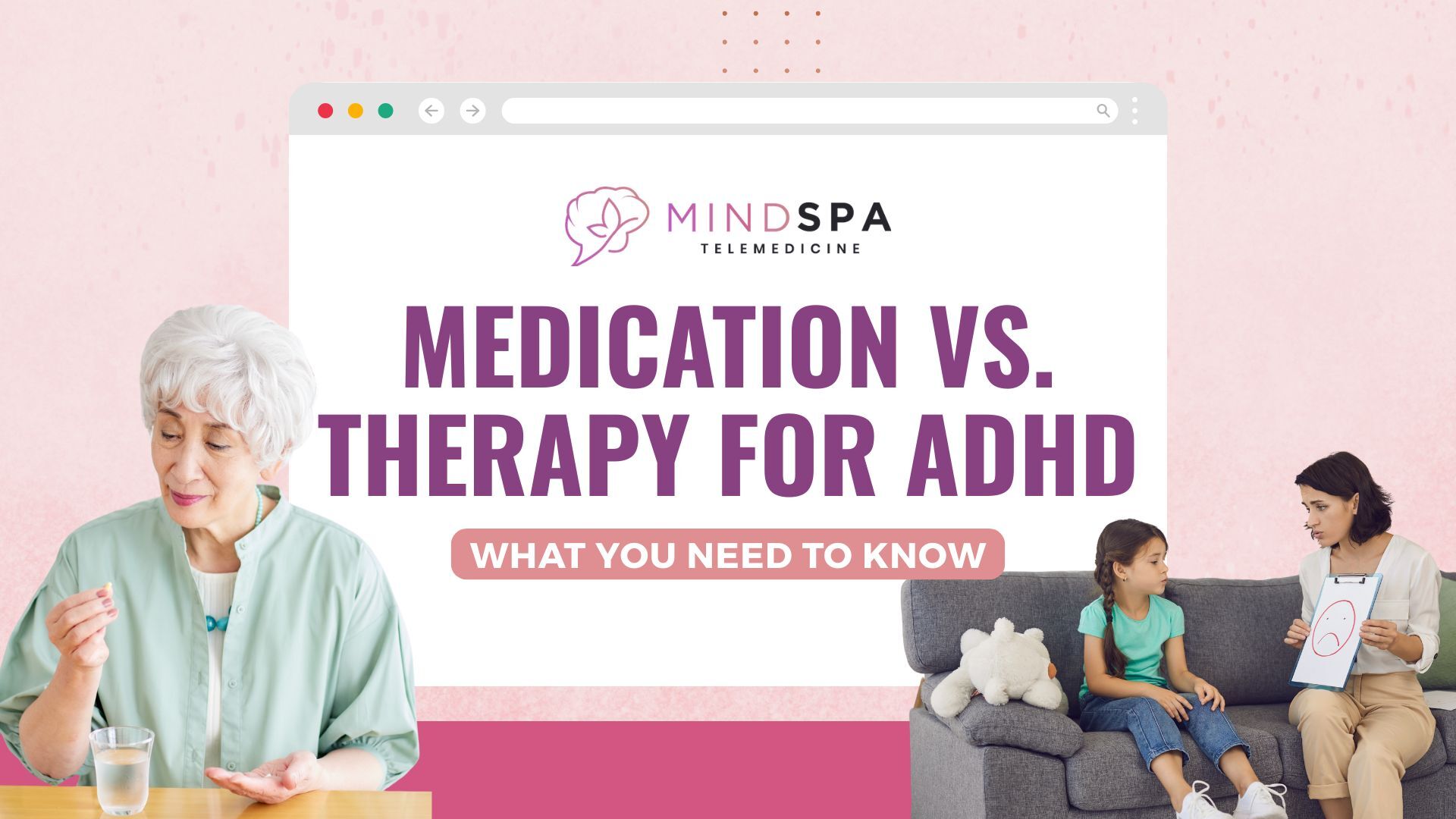Attention-Deficit/Hyperactivity Disorder (ADHD) is a disorder affecting both children and adults. It affects attention, control and general functioning. It is treatable, but then the question remains whether medication or therapy is the most appropriate. The reality is that they both are significant.
In MindSpa Psychiatry and Therapy, our goal is to provide the patient with an understanding of ADHD symptoms. That is why we are currently providing the TOVA tests, which are an evidence-based instrument that can be used to measure attention and impulse control. Providers can improve treatment, including medication and therapy, with accurate results.
Why ADHD Needs Treatment
ADHD is not just about being “easily distracted.” It is a brain-based condition that can interfere with school, work, relationships, and self-esteem.
- Children may struggle with grades, behavior in class, or friendships.
- Adults may face difficulties at work, in marriages, or in managing finances.
A study published in The Lancet Psychiatry found that untreated ADHD is linked to higher rates of academic failure, job loss, and accidents. But with the right treatment, people can manage symptoms and build successful lives.
Medication for ADHD
ADHD medications are typically stimulants, e.g., methylphenidate or amphetamines. They act by maintaining a balance in brain chemicals, which influence attention and self-control. Non-stimulant options can also be used by some patients.
Benefits of Medication
- Enhances attention and concentration.
- Reduces impulsivity
- Helps manage hyperactivity
- Performs tasks fast, usually in hours.
Medication allows many to live a better day-to-day life. Adults might finally work on projects in the workplace, and children might sit and take orders in class better.
Limitations of Medication
- Potential side effects: insomnia, appetite disorders, irritability.
- This is not a cure; symptoms recur in case of drug withdrawal.
- Failure to fully handle emotional or behavioral problems.
Although effective, medication is not likely to teach coping skills or modify underlying problems such as low self-esteem or anxiety disorders.
Therapy for ADHD
Treatment aims at behavior, thought process, and emotional health. It does not alter brain chemistry like medication, but it provides individuals with mechanisms of coping with symptoms.
Types of Therapy
- Cognitive Behavioral Therapy (CBT): Assists in negative thinking and impulsiveness.
- Behavioral therapy of children: Educates routines, rewarding procedures, and expectations.
- Family therapy: Enhances home-based communication and support.
- Coaching: Assists in time management, organization, and goal-setting.
Benefits of Therapy
- Builds coping skills
- Improves self-esteem
- Lessens anxiety and depression associated with ADHD.
- Promotes sustainability and stability.
As opposed to medication, therapy will have the ability to impart skills that will transfer to adulthood.
Limitations of Therapy
- The progress can be less than the medication.
- Demands regular interactions and effort.
- Some patients require therapy as well as medication.
Medication vs. Therapy: Which Works Best?
The solution lies in the hands of the person. Medication is very effective with some patients, and others favor therapy. A mix of both, to a great number of people, is the most effective.
- The medication assists the brain in controlling attention and impulse.
- Therapy develops the ability and confidence to cope with life.
A large study funded by the National Institute of Mental Health found that combined treatment—medication plus behavioral therapy—was more effective than either approach alone for children with ADHD. Adults also benefit from this built model.
Making the Right Choice
When deciding between medication and therapy, consider:
- Age: Children may require behavioral and school performance therapy, and adults may use medication to manage work and everyday activities.
- Symptom severity: Severe impulsivity or hyperactivity can be treated by medication to relieve symptoms faster.
- Personal preference: There are those who like the natural approach and those who appreciate the order medication gives.
- Support system: Families, teachers, or partners can be used to reinforce therapy.
At MindSpa Psychiatry and Therapy, we hear the personal needs of a patient. With the help of such tools as the TOVA test, there is an opportunity to measure the patterns of attention and give supportive, personal treatment recommendations.
Daily Life with Treatment
- Children on medication and therapy may focus better in class, complete homework, and feel more confident socially.
- Adults using both approaches may finally feel in control of their schedules, manage work demands, and strengthen relationships.
Treatment does not remove all challenges, but it makes them more manageable. Over time, many patients discover strengths they never realized they had—creativity, energy, and resilience.
Final Thoughts
ADHD is not a weakness or powerlessness. It is among such states that must be understood and affirmed. Treatment is important in both medication and therapy. The appropriate approach is determined by the life stage of a person, symptoms, and goals.
We trust in caring, personalized service at MindSpa Psychiatry & Therapy. Accurate diagnoses and referral of patients to the most effective treatment are possible with the assistance of the TOVA testing, which helps them choose the treatment that will be effective.
It may be medication, therapy, or both; the result is to make you, or your loved one, live as normally as possible, with balance, confidence, and a clear mind.
Frequently Asked Questions
Is ADHD genetic or environmental?
There are genetic and environmental impacts of ADHD. Research indicates that it has a high tendency to be familial, implying that it has a strong association with genes. It can also be caused by environmental factors such as stress during pregnancy, low birth weight, or difficulties in early childhood.
How much sleep with ADHD?
The amount of sleep required by people with ADHD is usually the same as that of other adults, 7- 9 hours, and that of children, 9-11 hours. But ADHD often leads to problems in falling asleep, maintaining sleep, or waking up refreshed.
What is ADHD morning anger?
ADHD morning anger is the condition of irritability, frustration or outbursts when one wakes up. It may be as a result of insomnia, inability to adapt to routine, or problems with brain control. Symptoms can be reduced by structured mornings and good sleeping habits.
Does caffeine help ADHD?
Caffeine may temporarily improve focus for some people with ADHD by stimulating dopamine production, similar to medication effects. However, it is not a replacement for treatment and can worsen sleep, jitters, or anxiety.
What is the burnout cycle of ADHD?
The ADHD burnout cycle happens when unmanaged symptoms lead to overexertion, stress, and exhaustion. People overwork to offset difficulties, burn out, and head back to the treadmill. Treatment, support, and balance assist in breaking it.

